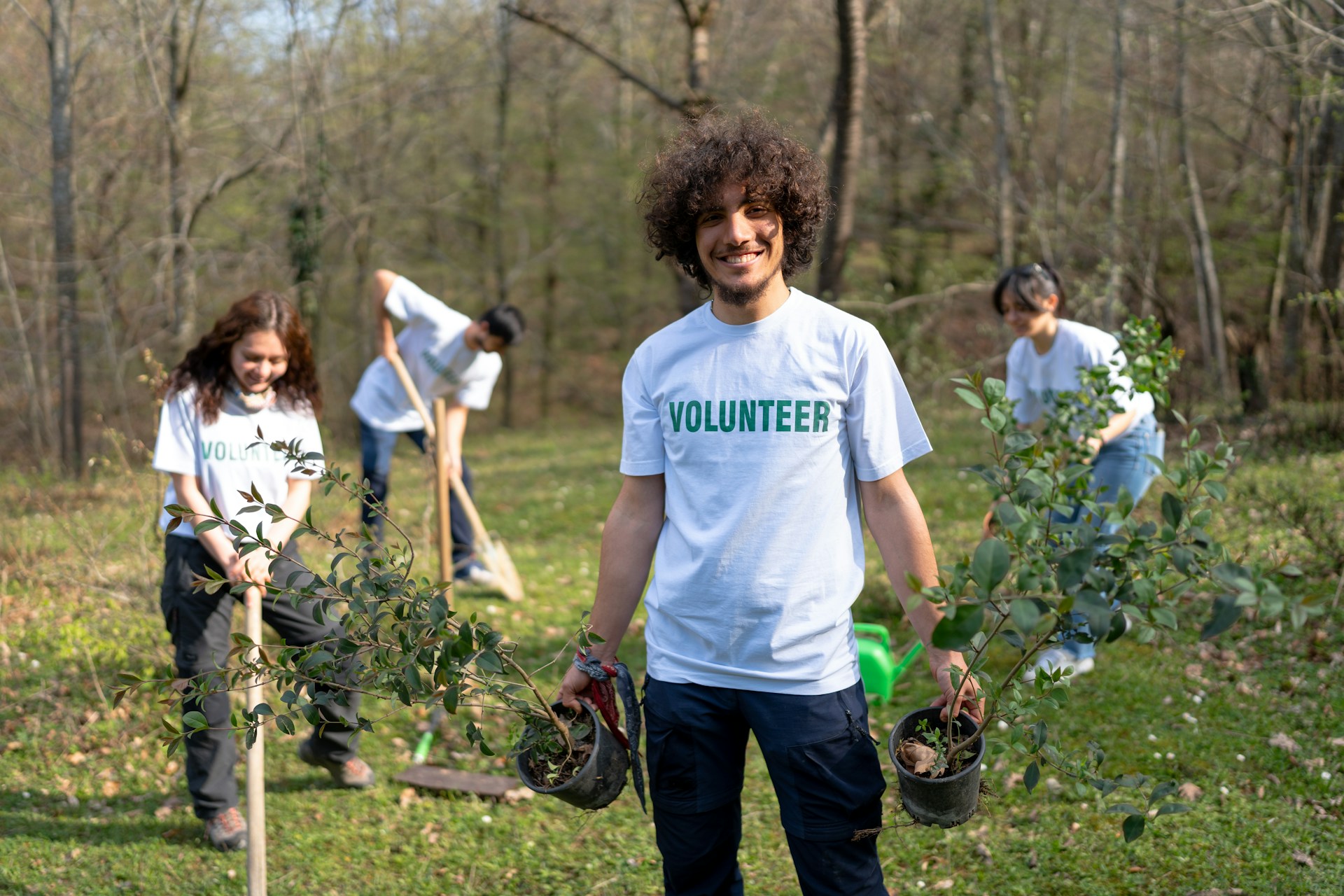
Volunteering and mental health benefits go hand in hand, offering powerful advantages for both the giver and the receiver. In today’s fast-paced world, where stress and anxiety are increasingly common, finding activities that reduce tension while fostering happiness is essential. Volunteering provides exactly that.
Studies show that giving back releases endorphins, the natural “feel-good” chemicals that elevate mood. This effect, often described as the helper’s high, helps reduce stress and creates long-lasting emotional well-being. Simple acts of kindness—whether mentoring a student, cleaning a park, or helping at a food bank—can lower anxiety and depression while giving life new meaning.
Moreover, volunteering adds routine and structure, which are especially helpful for people coping with loneliness or mental health challenges. Having a set responsibility and purpose helps build resilience and provides a sense of belonging.
Building Social Connections Through Volunteering and Mental Health Benefits
Loneliness has been recognized as a serious threat to mental health, but volunteering offers an effective solution. When people come together to serve, they naturally form meaningful relationships. These social connections provide encouragement, emotional support, and friendship, all of which contribute to improved mental health.
Unlike casual interactions, the relationships formed during volunteer work are rooted in shared values and collaboration. This creates a deeper bond that is often long-lasting. Whether you are meeting fellow volunteers, helping people in need, or working with organizations, these connections reduce isolation and improve self-confidence.
Volunteering also brings diverse people together, encouraging cultural understanding and empathy. It provides opportunities to engage with individuals from different backgrounds, broadening perspectives and strengthening communities. This inclusivity further enhances the mental health benefits of volunteering.
Boosting Self-Esteem Through Volunteering and Mental Health Benefits
Volunteering and mental health benefits are closely linked when it comes to self-esteem. Many people struggle with feelings of inadequacy or low confidence, but giving back helps reverse these patterns. Every time someone contributes their time or skills, they see firsthand that their efforts matter.
For example, teaching a child, supporting a charity event, or comforting someone in need can significantly improve self-worth. Receiving gratitude from those helped reinforces a sense of value and capability, which boosts overall self-esteem.
In addition, volunteering provides opportunities to learn new skills and discover hidden talents. Whether it’s leadership, problem-solving, or communication, these experiences support personal growth and resilience. Over time, volunteers often notice a positive transformation in how they view themselves and their place in the world.
The result is greater confidence and a stronger ability to cope with life’s challenges—key outcomes that highlight how volunteering and mental health benefits work together.
Strengthening Communities Through Volunteering and Mental Health Benefits
Beyond individual growth, volunteering strengthens entire communities. Volunteers provide critical services that might otherwise go unmet, such as supporting food programs, assisting shelters, or running educational projects. These contributions not only meet immediate needs but also build stronger, healthier communities.
The connection between volunteering and mental health benefits extends to society as well. As communities thrive, individuals feel pride in being part of something meaningful. Seeing cleaner neighborhoods, improved resources, or lives positively impacted creates a shared sense of accomplishment.
Furthermore, volunteer efforts often inspire others to join, creating a ripple effect of kindness and support. This collective energy fosters a culture of empathy, collaboration, and resilience. When people experience both giving and receiving care, mental well-being becomes a shared priority that uplifts everyone.
Embracing Volunteering and Mental Health Benefits
Volunteering and mental health benefits are deeply interconnected. From reducing stress and loneliness to boosting self-esteem and strengthening communities, the impact is profound. Volunteering is not only a gift to others—it is a powerful form of self-care and personal growth.
Even dedicating a few hours each month can create meaningful change. By choosing to volunteer, you open the door to better mental health, deeper social connections, and a greater sense of purpose. At the same time, your efforts uplift others, making communities stronger and more resilient.
If you’re searching for a way to improve your mental well-being while making a positive difference, consider volunteering. It may be one of the most rewarding choices you ever make, offering healing for both yourself and those you serve.